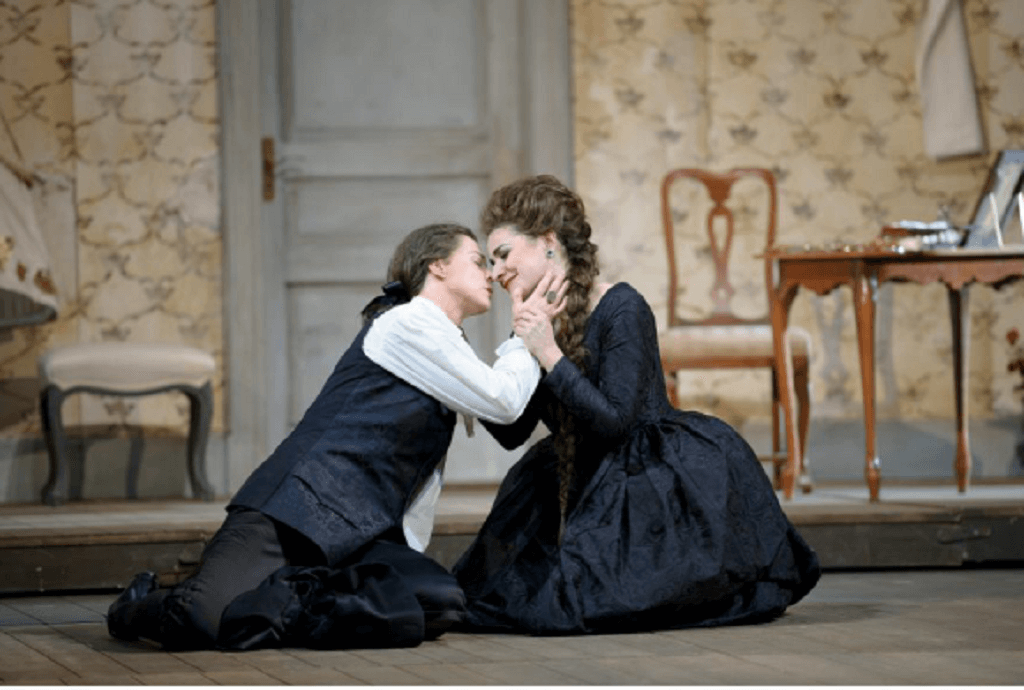The sorceress Alcina reigns over an enchanted island where she entices heroes to come as lovers but eventually converts them into plants, animals or rocks Now the knight Ruggiero has fallen victim to her love-spell. But his fiancèe Bradamante, disguised as a man, and her guard Melisso are determined to free him from his fatal attraction. Melisso puts a magic ring on Ruggiero`s finger which should break Alcina`s love-spell and open the knight`s eyes. It works. Alcina must confess that her magic is not infinite; she cannot stop Ruggiero`s escape and the liberation of all her former lovers from their spells. “Mi restano le lagrime – for me remain the tears“.
Internationally renowned director Loy sticks to the traditional illusions of baroque stagecraft–the costumes, the wigs, even the original machinery of the Baroque theatre, but all encompassed within a novel stage-on-the-stage concept. For the first act, Loy created two stage floors, which (not always obviously) symbolise two human emotional levels, the one artificial, superficial, the other deep and honest. The second act takes place in the dressing room of the stage-on-the-stage, the third in the backstage area. Loy tries to point out all the illusions of the baroque stage-sphere, so everything that takes place there is seen as pretentious, ostentatious, illusory. There is a kind of truth there, soon taken away by the entangling artifices of the theatre world. The third and final act is dominated by plain reality.
Loy also makes the personal progress of all characters apparent. Alcina`s journey is especially well shown, the long path from all-controlling ruler to lonely creature, lost in herself.
The evening`s successful cast is led by “Queen of the Baroque“ Cecilia Bartoli. As she is labelled, so she is–end of story. She enchants, she bewitches, she loves, she suffers, she loses, she holds onto, she touches, she frightens, she moves, … and above all: she sings. And she does this in an incredibly impressive, senisitive and richly colored way. Bartoldi’s acting skills leave the audience breathless as well. But this is no “one-(wo)man-show“: all roles are cast well, starting with Philippe Jaroussky as Ruggiero. After a short “warm-up“, his impact grows throughout the evening. His timbre is rightly well-known for being profound and yet angelic, with a sound that is never shrill, always melodious. The countertenor shows himself to be a humorous actor as well. Then there is Julie Fuchs in the role of Morgana: she sings with such simplicity, effortlessness and lightness in her voice, at times it seems almost unreal. Vardhi Abrahamyan, an Armenian mezzosoprano, embodies Bradamante/“Ricciardo“ and takes the audience`s breath away; her coloraturas are close to perfect. The low register sounds are very profound, the higher ones just as powerful. Whether she`s undressing, hopping around, raising a laugh or enchanting with her rich, dark-colored voice, this woman knocks people`s socks off. Krzysztof Baczyk (Melisso) and Fabio Trümpy (Oronte) are as well cast as all the other singers. Barbara Goodman is worth mentioning too, as an adorable and, at times, very comic mute Cupido.

